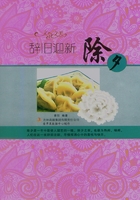In the last month of 1884 Becket was published. The theme of Fair Rosamund had appealed to the poet in youth, and he had written part of a lyric which he judiciously left unpublished. It is given in his Biography. In 1877 he had visited Canterbury, and had traced the steps of Becket to his place of slaughter in the Cathedral. The poem was printed in 1879, but not published till seven years later. In 1879 Sir Henry Irving had thought the play too costly to be produced with more than a succes d'estime; but in 1891 he put it on the stage, where it proved the most successful of modern poetic dramas. As published it is, obviously, far too long for public performance. It is not easy to understand why dramatic poets always make their works so much too long. The drama seems, by its very nature, to have a limit almost as distinct as the limit of the sonnet. It is easy to calculate how long a play for the stage ought to be, and we might think that a poet would find the natural limit serviceable to his art, for it inculcates selection, conciseness, and concentration.
But despite these advantages of the natural form of the drama, modern poets, at least, constantly overflow their banks. The author ruit profusus, and the manager has to reduce the piece to feasible proportions, such as it ought to have assumed from the first.
Becket has been highly praised by Sir Henry Irving himself, for its "moments of passion and pathos, . . . which, when they exist, atone to an audience for the endurance of long acts." But why should the audience have such long acts to endure? The reader, one fears, is apt to use his privilege of skipping. The long speeches of Walter Map and the immense period of Margery tempt the student to exercise his agility. A "chronicle play" has the privilege of wandering, but Becket wanders too far and too long. The political details of the quarrel between Church and State, with its domestic and international complexities, are apt to fatigue the attention. Inevitable and insoluble as the situation was, neither protagonist is entirely sympathetic, whether in the play or in history. The struggle in Becket between his love of the king and his duty to the Church (or what he takes to be his duty) is nobly presented, and is truly dramatic, while there is grotesque and terrible relief in the banquet of the Beggars. In the scene of the assassination the poet "never stoops his wing," and there are passages of tender pathos between Henry and Rosamund, while Becket's keen memories of his early days, just before his death, are moving.
"Becket. I once was out with Henry in the days When Henry loved me, and we came upon A wild-fowl sitting on her nest, so still I reach'd my hand and touch'd; she did not stir;The snow had frozen round her, and she sat Stone-dead upon a heap of ice-cold eggs.
Look! how this love, this mother, runs thro' all The world God made--even the beast--the bird!
John of Salisbury. Ay, still a lover of the beast and bird?
But these arm'd men--will you not hide yourself?
Perchance the fierce De Brocs from Saltwood Castle, To assail our Holy Mother lest she brood Too long o'er this hard egg, the world, and send Her whole heart's heat into it, till it break Into young angels. Pray you, hide yourself.
Becket. There was a little fair-hair'd Norman maid Lived in my mother's house: if Rosamund is The world's rose, as her name imports her--she Was the world's lily.
John of Salisbury. Ay, and what of her?
Becket. She died of leprosy."
But the part of Rosamund, her innocent ignorance especially, is not very readily intelligible, not quite persuasive, and there is almost a touch of the burlesque in her unexpected appearance as a monk. To weave that old and famous story of love into the terribly complex political intrigue was a task almost too great. The character of Eleanor is perhaps more successfully drawn in the Prologue than in the scene where she offers the choice of the dagger or the bowl, and is interrupted, in a startlingly unexpected manner, by the Archbishop himself. The opportunities for scenic effects are magnificent throughout, and must have contributed greatly to the success on the stage. Still one cannot but regard the published Becket as rather the marble from which the statue may be hewn than as the statue itself. There are fine scenes, powerful and masterly drawing of character in Henry, Eleanor, and Becket, but there is a want of concentration, due, perhaps, to the long period of time covered by the action. So, at least, it seems to a reader who has admitted his sense of incompetency in the dramatic region. The acuteness of the poet's power of historical intuition was attested by Mr J. R. Green and Mr Bryce. "One cannot imagine," said Mr Bryce, "a more vivid, a more perfectly faithful picture than it gives both of Henry and Thomas." Tennyson's portraits of these two "go beyond and perfect history." The poet's sympathy ought, perhaps, to have been, if not with the false and ruffianly Henry, at least with Henry's side of the question. For Tennyson had made Harold leave "To England My legacy of war against the Pope From child to child, from Pope to Pope, from age to age, Till the sea wash her level with her shores, Or till the Pope be Christ's."















